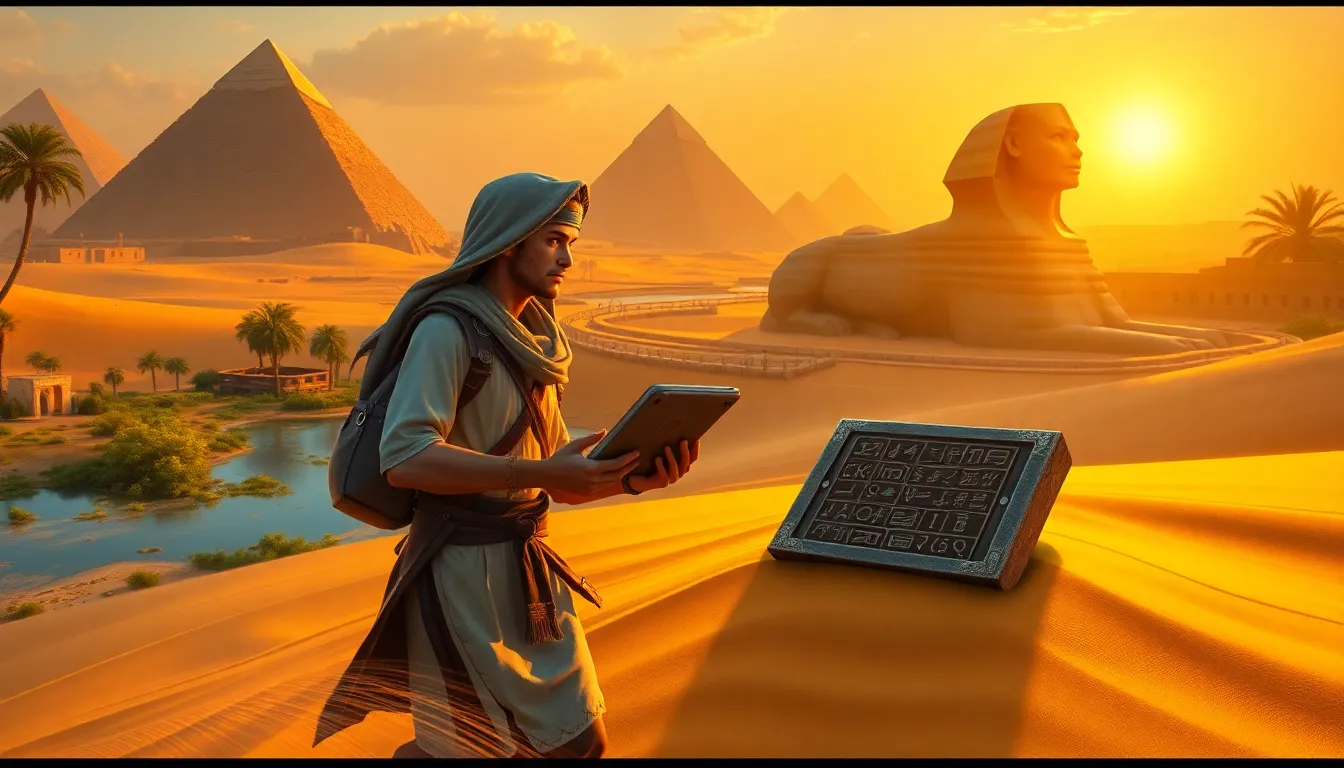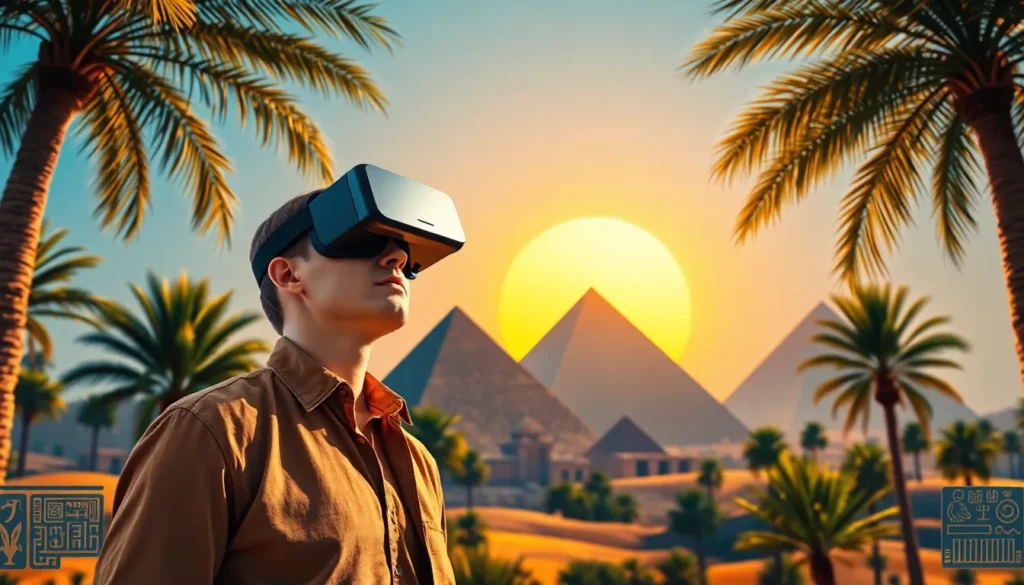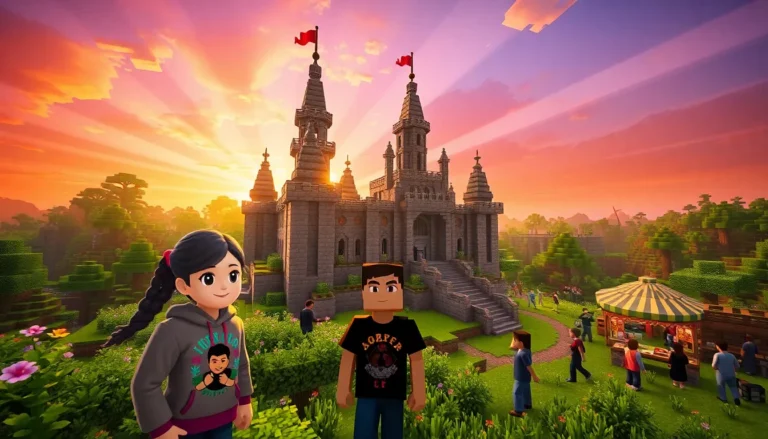Table of Contents
ToggleGamers, hold onto your controllers. In this text, we’re diving headfirst into the enchanting world of Ancient Egypt. Picture this: pyramids soaring against the desert sky, mysterious gods lurking in the shadows, and epic adventures waiting just around the corner. What could be better? Well, instead of ghosting your friends in your favorite multiplayer, why not luxuriate in the nostalgia and intrigue that this ancient civilization brings to the gaming landscape? Join us as we traverse the sands of time, unearthing a treasure trove of gaming insights that reveal how Ancient Egypt has shaped our virtual experiences. That’s right, he or she who dares take this journey will surely walk away with more than just loot.
Embarking on a Virtual Journey Through Ancient Egypt

Ancient Egypt beckons gamers with its grand monuments and profound mysteries. The allure isn’t simply about mummies and hieroglyphics, although they do play a crucial role. It’s about the culture shaped by the Nile, a civilization steeped in mythology and rich traditions. As players step into digital recreations of this world, they aren’t just playing a game: they’re walking through history. From the bustling streets of Thebes to the sanctity of the Valley of the Kings, every pixel tells a story.
Imagine controlling a character who navigates through these iconic environments. Graphics capture the golden sand ballet of desert winds, while soundtracks evoke the whispers of old, creating an immersive atmosphere. The attention to detail from developers has raised the bar for historical accuracy while ensuring engagement. This marriage of education and entertainment makes it a fantastic backdrop for adventures.
Exploring the Rich Tapestry of Ancient Egyptian Culture
Ancient Egyptian culture is as multifaceted as a diamond, shimmering with various influences and practices. At the heart lies its mythology, the pantheon of gods and goddesses guiding the fates of mortals. They represent wind, sun, fertility, and even war. Games that incorporate these deities and their stories provide players with a vivid narrative experience that transcends mere gameplay.
Also, the art and architecture of Egypt speak volumes about everyday life, mourning customs, and celebrations. Hieroglyphs painted on temple walls communicate stories of triumph and sorrow while also serving as clues for quests in virtual realms. Players encounter challenges that not only develop skills but also expand knowledge about this great civilization.
Sandwiched between gods’ blessings and Pharaohs’ decrees sits the complexity of social hierarchies, something that many games leverage to create compelling character arcs and relationship dynamics. Who wouldn’t want to navigate alliances in a kingdom ruled by deities?
Popular Games Featuring Ancient Egypt
Several games have left an indelible mark by drawing on the rich lore of Ancient Egypt. “Assassin’s Creed Origins” is often cited as a benchmark in this genre. The game invites players to step into the sandals of Bayek, a Medjay, retracing steps through a meticulously crafted Egypt under Roman rule. With scenic vistas and engaging side quests, it expertly intertwines lush landscapes with gripping narratives.
“Ankh” also presents a humorous take on the culture, where players navigate the underworld. This quirky approach emphasizes the lighter facets of Egyptian mythology while providing a fun-filled experience through confounding puzzles. Also, “Pharaoh” and its sequel, “Pharaoh: Cleopatra,” allow gamers to establish their own empires, manage resources, and honor the gods, all while managing the whims of ancient Egyptian society.
These titles not only offer rich entertainment but also serve as a bridge for new players interested in historical contexts.
Gameplay Mechanics Influenced by Ancient Egyptian Lore
The interplay between ancient lore and gameplay mechanics is fascinating. A common mechanic involves exploration, where players unlock areas inspired by real sites like the Great Sphinx or Luxor Temple. Each location can reveal treasures but often requires puzzle-solving skills that mirror the adeptness expected of a true Egyptian scholar.
Combat systems often echo the mythology of deities protecting their lands. There’s usually a flair for the dramatic, employing magical abilities inspired by gods like Ra or Isis to execute elaborate attacks or powerful defenses. This dynamic not only enhances gameplay but also instills a respect for lore.
Resource management reflects the natural environment. For instance, managing food supplies or water is critical, emphasizing the importance of the Nile to everyday life. Players feel the weight of choices that reflect historical realities. It’s akin to taking a history lesson, but way more exciting.
The Impact of Ancient Egyptian Aesthetics in Game Design
The aesthetics of Ancient Egypt have significantly influenced game design across genres. From the art direction to user interface, developers often tap into the rich visual language of this civilization. The use of pyramids, temples, and other iconic symbols creates an immediate sense of place that transports players.
Color palettes often draw from the warm hues of the desert, gold, ochre, and earthy browns, punctuated by vibrant shades of turquoise and purple that reflect the luxury enjoyed by the elite. Logo designs and branding strategies integrate motifs like the ankh or Eye of Horus, emphasizing continuity between a game’s theme and its market identity.
The choice of fonts often reflects hieroglyphics or ancient scripts. So, even menus become part of the immersive experience, engaging players right from the start.
Lessons Learned from Ancient Egypt for Modern Gamers
Ancient Egypt provides invaluable lessons applicable in today’s gaming environment. First, it teaches the significance of narrative depth. Games that encapsulate lore with rich storytelling tend to engage players, enriching their overall gaming experience. Story-driven missions can inspire empathy and connection with characters.
Also, the importance of environmental interactions cannot be overstated. Players learn to navigate ancient landscapes filled with perils, mirroring life’s unpredictability and the importance of critical thinking and adaptability.
Character development also finds roots in ancient hierarchies. Players learn why mastering one’s skills and engaging with diverse characters is crucial for progress, reflecting teamwork and leadership profoundly.
Embracing these lessons will not only cultivate better players but will also forge communities bonded through shared challenges and discoveries.





